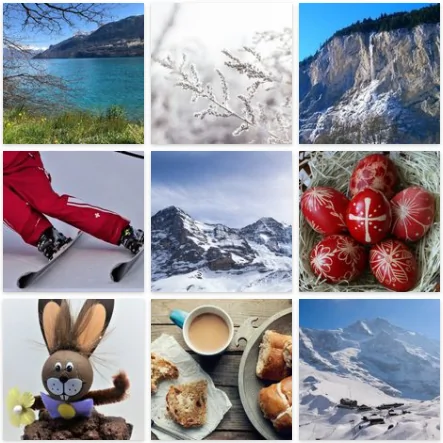|
Summer has slowly waved farewell and autumn has been boasting its colours to beautify the valley in gold before the shorter winter days and snow appear.
November is a time when many businesses try and take a month of rest. They seek some remaining warm weather a little further south to get recharged in readiness for winter visitors. This summer has been full in the valley, with many more visitors than usual as people have begun to travel again after Covid put their plans on hold. This has caused quite an overload this year on the valley of Lauterbrunnen and the services offered by the local council, such as toilets and parking. So what is it like to live in a village that has suddenly become an Instagram favourite? Here are some comments from local residents at a local meeting….. “We feel like employees at an amusement park” “We are almost desperate, we locals simply have no room left in Lauterbrunnen,” At a local residents meeting, it was clearly said that Day-trippers are problematic for traffic because they come just to see the Staubbach waterfall and leave without even buying a coffee, “They come in a rental car, take photos of the Staubbach Falls and then leave again.” This leads to traffic chaos: “I have the feeling that I live next to a motorway, people drive into the valley and out again. It’s annoying” Tourists walk into people's private garden areas to take photos and disrespectfully play football in the cemetery. Visitors are so awed at the Staubbach falls as they enter the village, that they will unconsciously stand in the middle of the narrow road to take photos of the Falls and become a traffic hazard themselves and cause danger to drivers. A quaint little rural village, that only has a narrow footpath on one side through the village, has a lot of congestion when tourists are not mindful to look out for their own safety. We welcome you to Lauterbrunnen, to enjoy the beauty of nature and the many other offerings here. Now you know what it can be like for residents to share their village with the holiday makers we all like to welcome. Source: https://www.srf.ch/news/schweiz/tourismusflut-in-lauterbrunnen-wir-fuehlen-uns-wie-angestellte-in-einem-freizeitpark Photo: Willian Justen de Vasconcellos 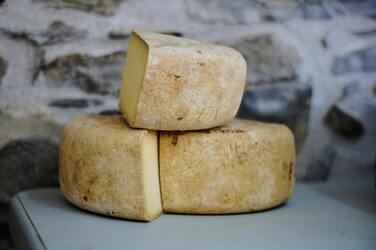 Mountain Cheese Mountain Cheese Listening to local myths and stories in a culture can really help to reveal characteristics of local people groups. The community of Lauterbrunnen is traditionally one of dairy farming. Since cheese is an elemental product in the livelihood of the farmers, so does it also takes centre stage in a tale from Aarau around the 1800’s. One day, while looking out over his caramel and white cows enjoying their summer grass, Hans the young shepherd thought that perhaps he wanted to get married. And then he could be as contented as his cows in their high pastures. Surrounded by snow capped mountains, gurgling streams and the chirping of Marmots, Hans thought that being married, would bring fulfilment to his life. Fortunately, Hans already knew three local sisters with whom he had been in school but he had not heard news of them since his years working on the alps in summer and in a garage in winter. Hans recalled that they were all equally beautiful and that they had all given him attention in class, such that he couldn’t think he had a favourite. Hans mused over his memories of class times and teasing the girls by slipping half dead crickets into the pockets of their aprons and how he was punished with cow pats rubbed into his hair. Hans chuckled at the screams he remembered over the crickets. Such small harmless insects that always made a big impact. Beate, Dorina and Luzia were “townies” and not familiar with collecting insects and he wondered if they would make a suitable farming partner. Hans decided to ask his mother, since she knew about girls and she was delighted to answer him, “If you want me to give you good advice," she said to him, "invite all three sisters over for supper and set out cheese for each of them and see how they handle it." The son followed this advice and invited the young ladies to his house and set the delicious matured Mountain cheese in front of them. He had made it himself and it had matured two years in a cool cave. Beate, with the cheeky smile and chubby cheeks was the first to take her piece and greedily devoured the cheese. She ate so quickly, including the rind, so that not a trace was left. Then Dorina, with her high forehead and wide smile, took the knife and cut off the rind so thick that the piece with the rind that she threw away contained a lot of quality cheese on it. Hans was dismayed, that his hard work of shaping and pressing the cheeses was not understood on someone who could throw it away. Slowly he looked to Luzia, who had waited for her turn to use the knife. With slow and careful slicing, Luzia, with the freckles and short nose, calmly peeled the rind clean from the cheese, just as it should be. “I’ll get us apples to eat” said Hans getting up from the table and he walked outside to where the apples were stored. Seeing his mother sitting in the sun peeling beans, Hans updated his mother on how the cheese tasting was going. His mother advised: "Take the third one, she will bring you luck." And so Hans chose Luiza to be his bride, and throughout his life he has never regretted that he had followed his mother’s advice. From: Otto Sutermeister: Children's and Household Tales from Switzerland (Aarau 1869), No. 39. The Swiss fairy tale has been found in a very similar way in Grimm's collection since 1819 under the title "Die Brautschau", KHM 155. Parabla 2011-03 Lots of special things seem to happen for guests. Here, a guest saw the birth of a calf in the meadow in front of the Eyhus.
Dairying has been a tradi8n in the valley however it is hard work, no holidays and low income. The average farm size is 18 hectares. These beautiful cows yield around 7000kg of milk per cow per year. That’s about 30 litres a day. Their price is around 4000 sFr.but to their owners they are priceless and are well cared for, even getting a regular wash. Each cow has a name The diet of mixed meadow grasses and fresh water, really influence the flavour of the milk and then naturally the cheesed produced. A walk along the Farm road al8ng from the Staubbach Falls is a must where you can buy local farm cheese and sometimes fresh milk. The dairy on the path from Grütschalp to Mürren has a show window where you can view their production. Some slices of cheese on fresh bread are a hiking picnic must-have and you will be helping the farmers pass on their livelihoods to the next generation. At the working Hydropower powerplant run by EWL in Stechelberg, you can visit the Eco Garden on their trail to see the labelled Flora examples. Although there are no benches, you can bring a blanket to sit on, picnic and enjoy the Weisse Lütchine and the Sefinen Lütchine Rivers after looking through this “compensatory garden”.
Since 1905 the hydropower had come from both the Sefinen Lütschine and the Weisse Lütchine rivers. Since 2005, the use of the Weisse Lütchine was stopped so that it could be preserved as a natural ecosystem and the Eco garden was built around 2013. The Plant produces eco-friendly energy. To some extent, the making of electricity reduces the flow of the river compared to its natural state. This in turn can reduce the quality of habitat for fish and other river animals. Compensation measures that were put into place include this revegetation of the meadow with flowers, creating two ponds for spawning grounds for residents such as frogs. A ‘Fish ladder’ was built to help fish move upstream in their season. The power plant also produces a little Creek of its own which flows back into the main river. You can get to the edge of the Weisse Lütchine and enjoy its gurgling power jumping over rocks and boulders before it meets the Sefinen Lütschine. 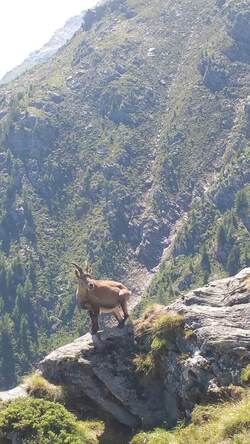 The hunting regulated by federal and cantonal legislation takes place in Lauterbrunnen as follows: In September on weekdays: deer, roe deer, chamois and ibex From October 1 up to and including November 15 on Mondays, Wednesdays, Saturdays: Roe deer Until the end of January on weekdays: wild boar and badger (only until the end of December) Until the end of February on weekdays: fox and marten (only up to 15 February) The right to hunt has been legal since the 1500s and the canton’s official position is that hunting is ecologically necessary as the population of deer, for example, increases yearly and if not hunted would cause environmental collapse. Licence holders have to take a tough exam and do hours of conservation work to get their permit, which then has to be renewed every year. It is now understood that hunting - or not hunting particular animals - has an effect on other aspects of nature. Wildlife management makes special demands on the hunter. The hunts are well controlled and animals are specified, no longer are only male adult animals taken. This also causes hunters anxiety when they aim at female and young animals, as is required in a controlled hunt to manage the populations. Hunting is strictly regulated by the cantonal government within the national framework provided by federal law. There are designated sanctuaries where hunting is not allowed. Annual targets are set for each type of game and hunters must keep to them. Hunting is by individual licence as opposed to game reserves, for example, In September on weekdays: deer, roe deer, chamois and ibex From October 1 up to and including November 15 on Mondays, Wednesdays, Saturdays: Roe deer Until the end of January on weekdays: wild boar and badger (only until the end of December) Until the end of February on weekdays: fox and marten (only up to 15 February) The local hunting club say that “All usual leisure activities can safely continue and the forest and mountain trails remain open during the hunting season. Owners of non hunting dogs must have their dogs under effective control at all times. In particular, their dogs may not hunt during the hunting season.” A licence is needed of course and the requirements can be found here: https://www.vol.be.ch/vol/de/index/natur/jagd_wildtiere/Jagen.html#middlePar_textbild_6a49 Photo: by Eyhus 5 August 2019 Recipes in the alp areas of the Berner Oberland are uncomplicated, easy and delicious due to their high quality ingredients and fresh preparation without mixing too many flavours and different ingredients.
Breakfast could be fresh bread, with a lot of butter and choices of honey, marmalade or Nutella. Maybe a mixture of grated apple with some quark, yoghurt, raw oats, sultanas and raw nuts may also be served. And coffee. Bread with cheese or fruit may be eaten at the 10 minute morning tea break, called “Shnoonies”. Often it is the “second breakfast” for outdoor workers. The famous Fondue (melted cheese with bread cubes) or Raclette (melted cheese over boiled potatoes and condiments) or roasted sliced meat are special occasion meals. The main hot meal is mostly eaten around 12:30 and usually a green salad is enjoyed first after being tossed in a light dressing. Simple potatoe and noodle dishes are common. Such as, boiled potatoes served with quark mixed with dill or shallots alongside 20 minute boiled, then 10 minute baked sausage (smoked or plain) with their ends pre-cut 2 cm deep in a cross. Or perhaps a vegetable pie, lentil soup, goulash or plain hot pasta garnished with caramelised onions could be midweek favourites. The evening meal is often simply bread, butter, cold meats and several different cheeses. Hot tea made with fresh lemon balm leaves or mint with boiling water and a little honey makes a refreshing accompaniment. When visitors arrive for “cake and coffee”, the much loved sweet treats appear like Apple strudel or cake or the renown Käsekuchen (Cheese cake), a baked semi sweet cake made with quark - so delicious on its own without any garnish. Rösti (Swiss) pronounced “roerrshtee” is a Swiss dish, mostly of potatoes, in the style of a fritter. It was originally a breakfast dish. But now eaten as a main midday dish, often with a fried egg on top. It is very filling. Ingredients: 4 medium potatoes 1⁄4 cup butter or 1⁄4 cup margarine 1 small onion, chopped 1⁄2 cup diced gruyere or 1⁄2 cup swiss cheese 1⁄2 teaspoon salt 1⁄4 teaspoon pepper 2 tablespoons water How to: Heat 1 inch salted water to boiling. Add potatoes. Heat to boiling; reduce heat. Cover and cook until tender, 30 to 35 minutes. Peel and shred potatoes or cut into 1/4 inch (2cm) strips. Heat butter in skillet until melted. Add potatoes, onions, and cheese. Sprinkle with salt and pepper. Cook uncovered over medium heat, turning frequently, until potatoes start to brown, about 10 minutes, adding 1 to 2 Tblsp. butter to prevent sticking if necessary. Press potatoes with spatula to form a flat cake; sprinkle with water. Cover and cook over low heat, without stirring, until bottom is golden brown and crusty, about 10 minutes. Place inverted platter over skillet; invert potatoes onto platter. To make the Alp Noodle version: Take out 2 potatoes and add in a handful of pasta noodles and cook the pasta and potatoes (cut into small pieces before cooking) together. Don't shred the cooked potatoes. Then heat butter, or oil in skillet/pan as above. Just before serving stir through half a cup of apple sauce. (The Swiss serve the apple sauce cold on top, but I think it is easier to stir in before serving so it heats up a little.). Basic Swiss Salad dressing for Soft Leaf lettuce 3 tablespoons quality White wine vinegar a third teaspoon salt Mix together so salt dissolves. Then add in a teaspoon or 2 of mustard, a pinch of ground black pepper, stir so that mustard breaks down. Lastly stir in 4 tablespoons Oil. No need to shake the dressing. Pour over Soft leaf lettuce and decorate with nuts, pumpkins seeds, finely diced radish or carrot strips. Always simple. 6. Be a clean freak and a neat freak, pick up rubbish when you see it and put it in the bin.
7. Always says 'Hallo' or ' Grewt-zee' on going into a shop or bus and say ' A-dare' when you leave. If you see someone you know, always shake their hand. 8. Look people in the eye when you say Hallo - older people will appear like they are staring or even look you up and down. 9. Walk UP the hill as well as down. E.g. walk up to Wengen is an hour with super views. 10. Reuse, recycle, restore, regenerate, rejuvenate, refurbish, repurpose everything unless you live in the city. 11. Take your shoes off before going inside a home and take flowers if invited to dinner, shake everyone's hand when arriving and on leaving.
12. At dinner, wait for the host to say "Prost" before drinking and everyone will clink their glasses with each and everyone while looking them in the eye when clinking. And wait for your host to say "Engoiter" meaning ' enjoy your meal ' before you eat. 13. Never complain. Ensure that everyone votes on a new idea about change through a show of hands without holding a grudge afterwards since everyone is allowed to freely have their own opinion. 14. Use your car (or drive with a friend) as the last option if you are unable to walk, ride a bike, catch a bus/ train to your destination. 15. Get qualified through lessons on how to care for a dog before you get one. 1. Squash your trash as small as you can before putting it into the taxed AVAG bag. Then stand on the AVAG bag as you fill it. All kids are taught these tricks and you will hear the people downstairs doing this occasionally on their balcony. Swiss don't want to pay more taxes than needed.
2. Drink Rivella. Rivella is made from the whyy of cheese making and is healthy and the national drink. It is also popular and not easy to appreciate a different flavour in a carbonated drink. Buy Swiss made brands like Aromat salt seasoning, Callier chocolate, Caotina drinking chocolate, Mammut outdoor wear, Dakine back packs, Swatch watch if you your budget doesn't stretch to Breitling or Tag Heuer, to name a few. 3. Eat a large hot lunch such as Rösti and a small cold dinner of bread, cheese and pickles. (Rösti means “crisp and golden,” also a dish of shredded potatoes sauteed on both sides until crisp and golden.) 4. Spread your Swiss butter very thick on your bread without guilt and no one will look at you strangely. 5. Men always sit on the toilet seat in homes. You may se these sign below as a reminder. 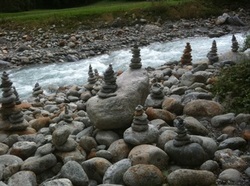 As people, we keep memories to the achievements and adventures we have journeyed. What becomes of these after the next generation? Live your dreams and enjoy them with others. We hope that we have created a comfortable, cosy and calm space for people to relax and contemplate new adventures in the Jungfrau area as they gaze over at the Staubbachfall that overlooks the apartment. There are many amazing activities here to do. Some highly dangerous such as base jumping, for which you need to do a lengthy course probably in your home area. Others are thrill noteworthy such as hang gliding or parachuting over the valley and the Satubbachfall in a Tandem arrangement. Or for those not wobbly with heights, there is the Climbing steel ropes track or Klettersteig around the steep valley walls at Mürren. This will really make your palms sweaty but you can get the help of a local guide and stay clipped in. Simply walking up the valley along the almost flat farm road is breathtaking and stroller-pram friendly. In every season there is something in nature going on and surprises such as new water springs that spurt out after rain from the rocky walls or ice cracking in Spring as the snow melts. The sound of water rushing along the White Lütchine river also leaves an impression. We love to hear the gurgling sounds of the little Bachlei under our balcony. Often you can see salmon in there and it is certainly a lovely place to sit and dangle your feet after a long walk on a hot summer day. One is never far from the busy, rushing sounds of water on a walk through this valley. From the balcony of the Holiday apartment you can see and hear gurgling, spluttering and busy water. So relaxing. The 1 bedroom apartment is a convenient base to explore both mountain walking paths either side of the valley as well as Grindlewald in the next valley. Of course in winter it is a playground of three snow fields. ‘As for man, his days are as grass: as a flower of the field, so he flourishes. For the wind passes over it, and it is gone; and the place there shall know it no more.' Ps 103:15-16 |
Eyhus 5
Where dreams begin for outdoor adventures in the inspiring Jungfrau region Categories
All
Archives
July 2024
|
|
Eyhus 5,
3822 Lauterbrunnen, Schweiz Email: [email protected] About Us: We love the Jungfrau Region and enjoy helping guests to plan and discover the beauty here for themselves. Summer, Winter, Spring and Autumn each have their opportunities to give inspiration in this amazing Playground. |
|
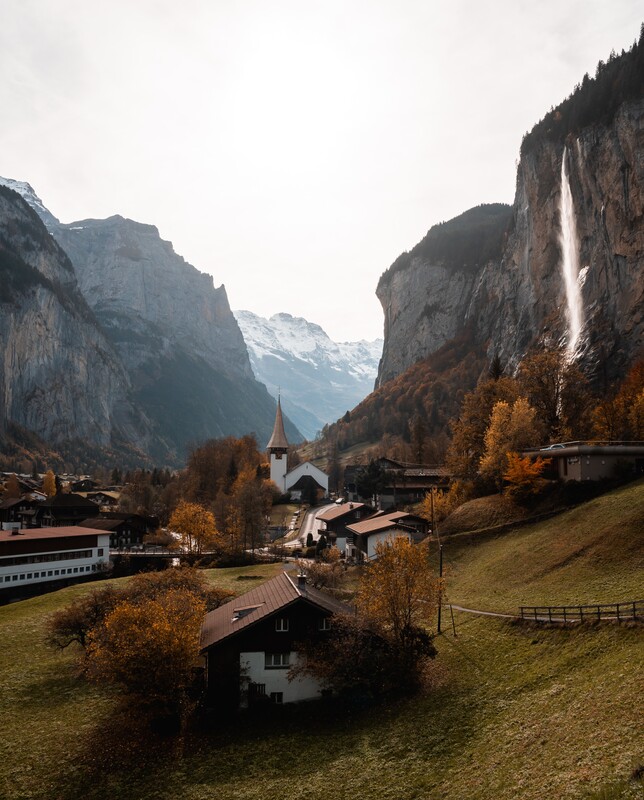
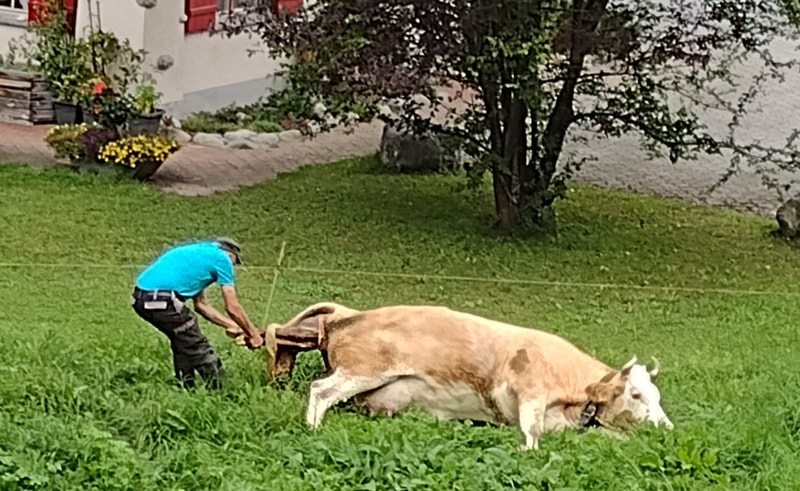
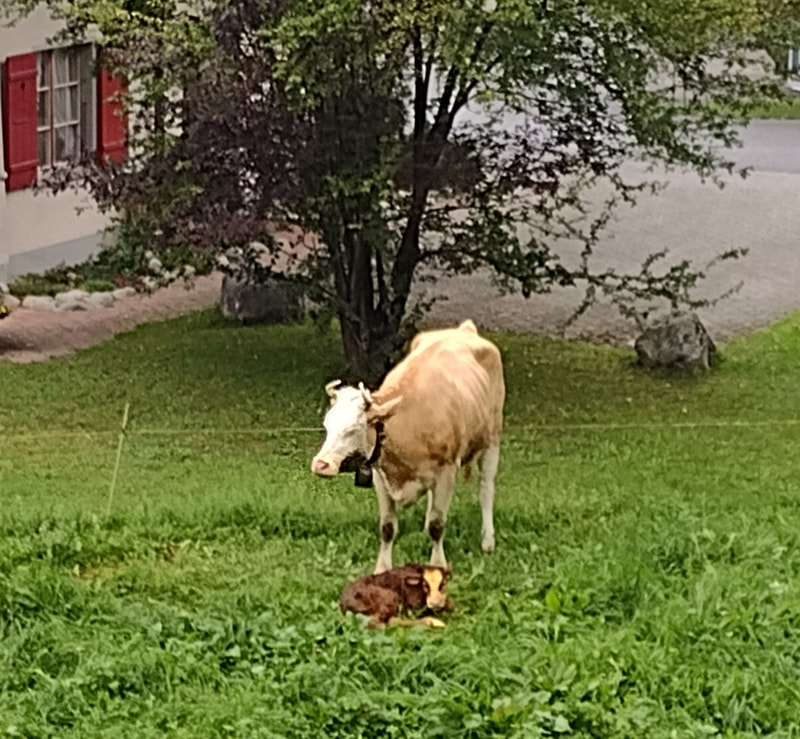
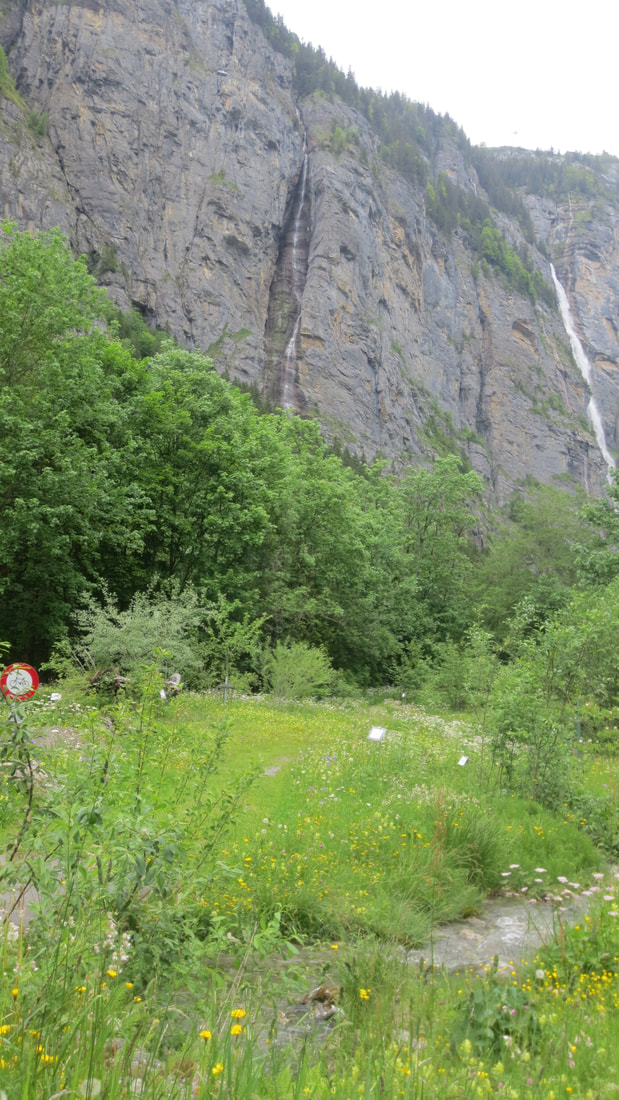
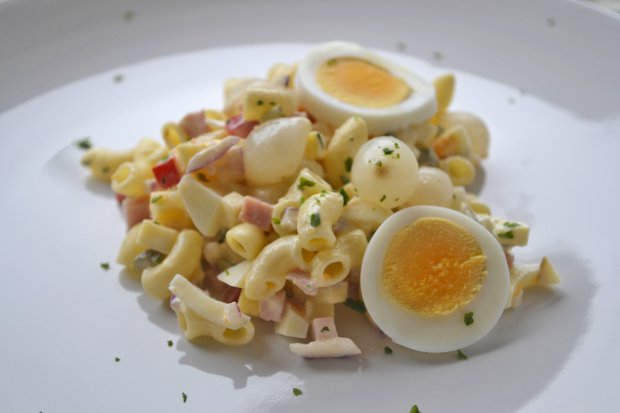
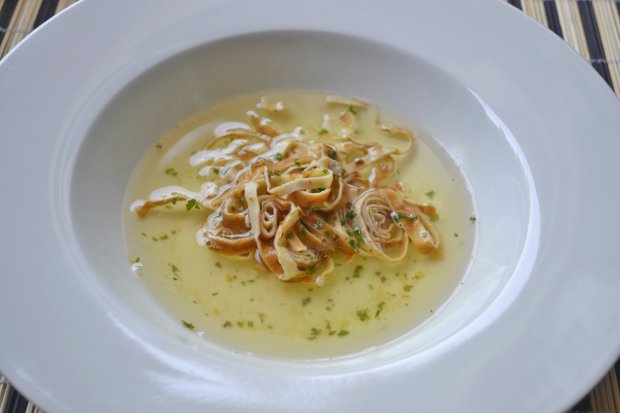
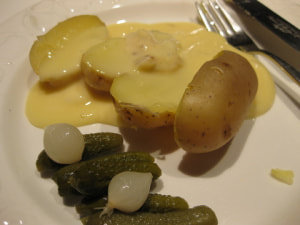
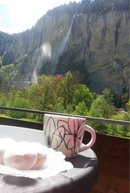
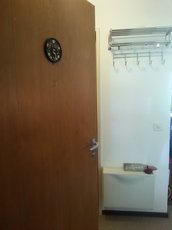
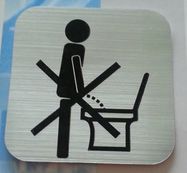
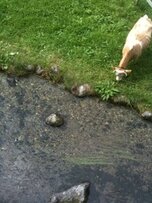
 RSS Feed
RSS Feed
